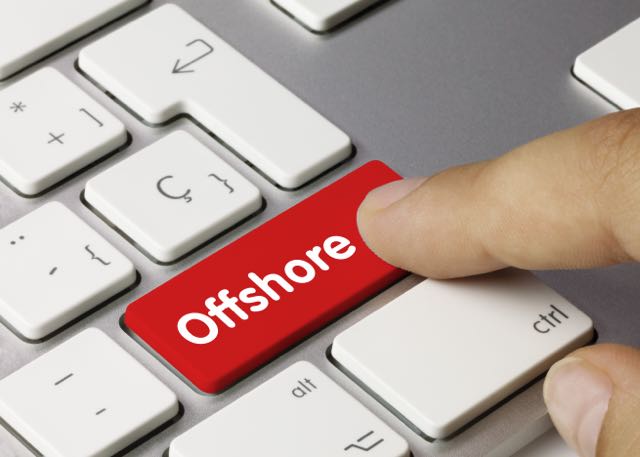Offshore Company Formation for Entrepreneurs Aiming to Expand Business Ventures.
Offshore Company Formation for Entrepreneurs Aiming to Expand Business Ventures.
Blog Article
Step-by-Step Guide to Effective Offshore Firm Formation
The development of an offshore firm is a nuanced process that calls for mindful factor to consider of various factors to make certain success. Comprehending the advantages of offshore enrollment, selecting a proper jurisdiction, and carefully preparing the necessary paperwork are vital actions in this journey.
Understand Offshore Firm Advantages
Comprehending the advantages of offshore business development is vital for entrepreneurs seeking to enhance their organization operations. Offshore entities can guard personal and business possessions from possible legal insurance claims, financial institutions, and political instability in the entrepreneur's home nation.
Additionally, offshore firms frequently appreciate beneficial tax obligation regimes. Lots of territories provide reduced or zero business tax obligation rates, which can dramatically enhance earnings margins and reinvestment capabilities. By purposefully taking care of tax liabilities, local business owner can channel resources into growth and development.

An additional advantage is raised privacy and confidentiality. Offshore jurisdictions usually have strict privacy laws, which can safeguard sensitive company information and personal information from public analysis. This facet is particularly attractive for entrepreneurs who value discretion in their economic events.
In addition, overseas business formation can help with international business procedures. It permits less complicated accessibility to worldwide markets and improves integrity with global companions. By leveraging these advantages, entrepreneurs can tactically position their businesses for lasting success and affordable benefit in the worldwide market.
Choose the Right Territory
When choosing the suitable jurisdiction for overseas firm formation, several critical variables need to be thought about to guarantee placement with your service goals. The initial element to assess is the governing atmosphere; territories with well-established legal structures provide higher safety and security and predictability for your business procedures.
Different territories supply differing tax obligation advantages, consisting of low or absolutely no tax obligation prices for offshore business, which can dramatically enhance profitability. In addition, consider the political stability and economic conditions of the jurisdiction.
One more vital variable is the convenience of operating, that includes the effectiveness of the registration process, continuous compliance demands, and the accessibility of expert services such as legal and bookkeeping support. Additionally, examine the track record of the territory, as some may be seen much more favorably than others, influencing your company's trustworthiness with financiers and clients.
Last but not least, consider the details sector guidelines that may influence your company. By thoroughly assessing these elements, you can make an informed decision on the best jurisdiction for your offshore business formation.
Prepare Required Documentation
Preparing the called for paperwork is a vital action in the offshore company development procedure. This phase involves celebration and organizing various lawful files that will certainly sustain the establishment of your overseas entity. The certain demands can differ based on the chosen territory, yet there prevail records normally needed across a lot of places.
Firstly, you will require to provide evidence of identity, such as valid passports or government-issued recognition for all directors and shareholders. In addition, you might be required to send evidence of address, such as energy expenses or financial institution declarations, which should not be older than three months.
In addition, an in-depth organization plan detailing the purposes, operational structure, and designated tasks of the overseas company might be called for to demonstrate legitimacy and purpose. Depending upon the territory, you might additionally require to prepare a memorandum and articles of association, which act as the foundational papers of the firm.
Involving a qualified offshore provider can substantially streamline this procedure by ensuring that all documentation is complete and compliant with regional laws, reducing potential delays in your company formation.
Total the Enrollment Refine
To finish the registration process for your offshore business, it is necessary to submit the prepared documentation to the suitable regulative authority in your selected jurisdiction. This step marks a vital phase in establishing your business and requires precise interest to detail.
Begin by assembling all essential kinds, consisting of the application for consolidation, memorandum and short articles of organization, and any recognition documents for the supervisors read and shareholders - offshore web link company formation. Guarantee that all files adhere to regional guidelines and are accurately filled in to avoid delays
As soon as your paperwork is constructed, submit it together with the called for fees, which can differ by territory. Some authorities may enable on-line submissions, while others call for physical shipment. Bear in mind any kind of additional needs, such as notarization or legalisation of documents, which may be needed depending on regional laws.
Upon submission, the governing authority will assess your application. This process might take several days to weeks, depending upon the territory and the complexity of your application. When approved, you will obtain a certificate of consolidation, formally establishing your overseas firm and allowing you to continue with necessary functional steps.
Manage Compliance and Coverage
Browsing the intricacies of compliance and reporting is crucial for the durability and success of your overseas company. Compliance entails adhering to the lawful requirements of the territory in which your offshore entity is registered, while reporting pertains to the prompt entry of needed documentation to regulative authorities.

Furthermore, keeping clear documents is essential. This includes financial statements, minutes of meetings, and paperwork of substantial company tasks. Regular audits can also be useful in recognizing possible compliance problems at an early stage.
Furthermore, remaining notified regarding modifications in regulation or governing practices is critical. Territories often update their compliance frameworks, and timely adaptation is vital to staying clear of fines or lawful issues.
Final Thought

Report this page